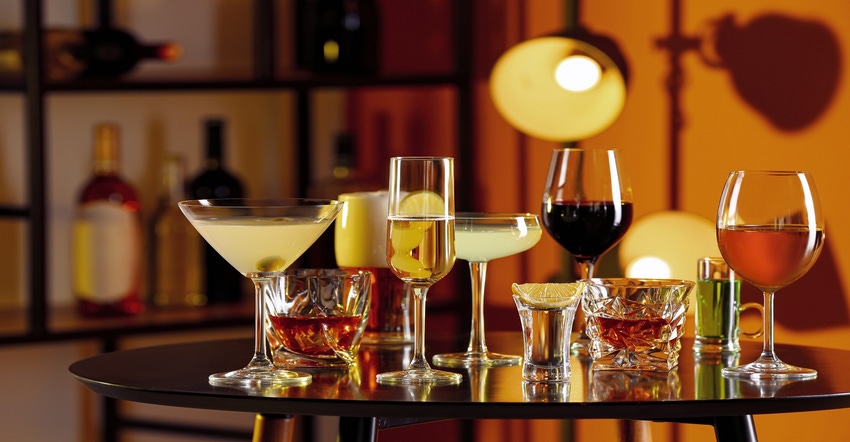Millennials drive interest in luxury alcohol brands
New insights from Datassential show Millennials are more likely to opt for luxury alcohol brands compared to other demographics—a behavior that’s not unusual for the group, experts contend.

More than half of Millennials (59%) said they exclusively or almost always choose a luxury brand of beer, while a little less than 42% exclusively or almost always opt for luxury spirits and 44% opt for luxury brands of wine, according to new data from Datassential.
That’s compared to 50% of the general population that opts for luxury beer, 33% that opts for luxury spirits and 31% that opts for luxury wine. Those numbers are even lower for Gen X and Baby Boomers.
The insights were shared in Datassential’s Buzzworthy Beverage Trends webinar.
According to Kyle Chamberlin, associate director of customer experience at Datassential, the move toward luxury booze brands for Millennials lines up with a key motivator of the group: affordable indulgence.
“With Millennials, it’s still an affordable, indulgent thing,” he said during the webinar. “The most expensive bottle of wine at your local distributor is a lot cheaper than a pair of Tom Ford shoes.”
These purchase habits aren’t unusual for the demographic, Colleen McClellan, vice president of Customer Experience/Sommelier/WSET III at Datassential, contended.
“[Millennials have] always been, in the food and beverage space, willing to pay a little bit more or choosing those higher end experiences,” she said during the webinar. “It feels to me that food and beverages, especially for Millennials, just wove its way into their DNA and has not left. It’s still a really, really important part of their life whether they have kids or not.”
Millennials, who were predicted to wield spending power of more than $1 trillion by 2020, drive a number of trends, especially in the food and beverage space, making them a prime target for luxury alcohol brands.
“We do see that Millennials are the ones who are flexing the most,” Chamberlin said during the webinar, “so when we think about who is the target for luxury brands in the spirits space … really the Millennials are the ones who are going to be spending up.”
“Luxury drinkers,” which Datassential defines as people who have an annual household income of more than $100,000, are another group that’s more likely to opt for luxury alcohol brands.
Slightly less than half (43%) of consumers who have an annual household income of $100,000 said they own a luxury brand of spirit—second only to a luxury brand of clothing (45%). Just over a third (34%) said they own a luxury brand of wine.
Looking at spirits, 40% of people who make more than $100,000 said they exclusively or almost always choose a luxury brand of vodka or whiskey. A slightly smaller number buy a luxury brand of tequila (37%), and about one-third opt for luxury brands of bourbon (35%) or scotch (34%).
“Within the wine and spirits universe, [the luxury drinker category] is going to be your target for that next level of involvement,” Chamberlin said.
Overall, high-income consumers tend to drink more than other income groups, regardless of brand. Data show about two-thirds of the general population said they drink once a week or more. That number jumps to 73% for people who are making at least $100,000.
Rachel Adams joined Informa’s Health & Nutrition Network in 2013. Her career in the natural products industry started with a food and beverage focus before transitioning into her role as managing editor of Natural Products INSIDER, where she covered the dietary supplement industry. Adams left Informa Markets in 2019.
About the Author(s)
You May Also Like






